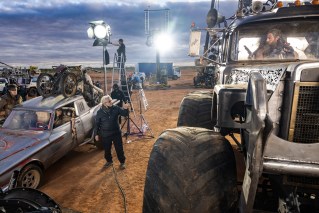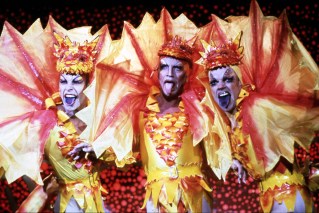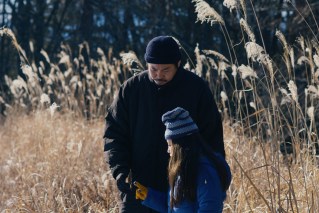Evil Does Not Exists: A wondrous eco fable that is much more than it seems

Source: Modern Films
Nature and its unexpected power is front and centre in Evil Does Not Exist, acclaimed director Ryūsuke Hamaguchi’s strange and immersive fable.
The forest canopy sways as Takumi (Hitoshi Omika) chops wood in a clearing. It is cold and snow is on the ground, and Takumi – in early middle age with a placid, unreadable face – prepares the wood with great care.
The camera follows in real time as he saws a log into sections then splits each one into quarters for the fire, loads it onto a wheelbarrow and arranges it on the wood stack next to the house.
He is neat and deliberate, a study in mindfulness that shows respect for the tree and the use to which it will be put.
This is arthouse fare that slowly casts a powerful spell. After chopping the wood, Takumi goes down to the forest stream to fill containers with clear water fed by snow melt higher in the mountains just outside Tokyo, in a village called Mizubiki.
The water is so pure it persuaded a soba-noodle maker to shut her Tokyo outlet and move here. Takumi, widowed and caring for a young daughter, Hana, who roams alone along the deer trails, is the village odd-job man and the water is for the noodle cafe.
The simple lifestyle we now admire is under threat when developers arrive but nothing unfolds as you predict. On the surface, a village must protect itself from greedy developers whose glossy brochure promotes a glamping site not far from the town.
It sounds like a standard David and Goliath battle, and the developer, cynical and suave, is racing against a deadline to take advantage of post-COVID subsidies.
Yet the story expands into so much more when two young public relations people – in fact, talent agents brought in for the job – host a town meeting.
Takumi is among those politely pointing out the septic tank capacity is for 50 and the site caters for 60. It becomes obvious there will be sewage arriving daily along with the snow melt.
The town meeting is a perfect piece of cinema. Takahashi (Ryuji Kosaka), confident and handsome, takes the lead and talks up the project he knows only from his notes, assisted by Mayuzumi (Ayaka Shibutani), who is quieter and more deferential.
As the questions get tougher, their demeanours slide so subtly there is no identifiable moment of change, but by the end they are different people; chastened and almost shamed. They report back to their boss and are told to hire Takumi as a caretaker to bring the village onside.

The story derails in unexpected ways. Photo: Modern Films
From this point, the story derails in unexpected ways. Takahashi, who is miserable in public relations, decides to throw it in and move to Mizubiki to be part of town life and Mayuzumi agrees to at least stay for a while. Then Takumi’s daughter goes missing.
This wondrous eco fable started life with just the soundtrack music, an often-discordant orchestral track that hints at something out of balance. It was written by Eiko Ishibashi, with whom director Ryūsuke Hamaguchi collaborated on his acclaimed Oscar-winning movie Drive My Car.
He filmed an accompanying silent nature film, Gift, set to her music. The feature film grew from this and its origins account for the drifting rhythm and the way scenes unfold with only the sparest dialogue.
This article first appeared in InReview. Read the original here.








